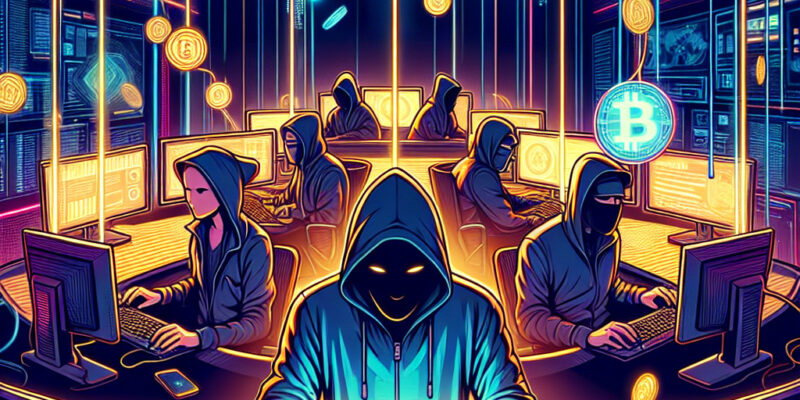Unveiled: North Korean IT Workers Secret Crypto Hustle Exposed

In an unexpected turn of global digital intrigue, North Korean IT professionals have come under the spotlight for their covert operations in the cryptocurrency sector. These proficient workers, typically known for their technical prowess, have taken on a new venture: integrating themselves into foreign companies by using a complex web of digital tools and clandestine tactics.
At the heart of this operation is their cunning use of purchased government-issued IDs. These documents, often obtained through illicit means, serve as the foundation for their new, assumed identities. With these, they can present themselves as legitimate candidates for job opportunities in countries unaware of their true origins. This step is crucial, as it allows them to mask their North Korean affiliations — a necessary move given the global sanctions and restrictions in place against the regime.
But the deception doesn’t stop at identity. These workers employ Virtual Private Networks (VPNs) to obscure their real locations. VPNs have long been the go-to tool for privacy-conscious individuals, providing a secure, encrypted connection to the internet that can disguise a user’s true geographic location. In this scenario, they are pivotal in maintaining the facade of being based in a more neutral or overseas location. This high-tech layer of camouflage ensures that even the most diligent background checks might not raise red flags.
Further enhancing their digital toolkit, these North Korean workers subscribe to various artificial intelligence platforms. These subscriptions enable them to harness cutting-edge technologies to perform tasks, refine skills, and boost productivity — making them attractive hires for international tech companies. AI tools can simulate human-like responses, generate code snippets, and assist in troubleshooting, thus streamlining workflow and heightening the workers’ appeal as highly competent professionals.
Armed with sophisticated devices, they connect remotely to their virtual workplaces. These tools are often the latest in computing technology, allowing for seamless integration into company systems and ensuring optimal performance. It’s a setup designed not just for efficiency, but for maintaining the guise of a dedicated, ordinary employee — albeit one who operates from clandestine origins.
The motivation behind this elaborate setup is undoubtedly financial. By securing jobs in foreign tech firms, these workers can earn considerably more than they would in their home country. Moreover, it’s widely speculated that a portion of these earnings is siphoned back to the North Korean government, supporting its activities under the radar of international oversight. This scenario highlights a stark reality where personal and national gains are intricately intertwined, illustrating the lengths to which the regime will go to circumvent global restrictions.
The implications of this scheme are vast. It raises questions about the ethics and security of remote hiring processes, especially in tech-driven industries where location has become an insignificant barrier. Companies now face the challenge of fortifying their hiring practices and cybersecurity protocols to ensure they’re not inadvertently contributing to international funds or supporting a regime known for its controversial activities.
As this story unfolds, it serves as a reminder of the unexpected intersections between technology, economy, and geopolitics. In a world where digital tools can both liberate and disguise, the global community faces a continuous struggle to balance openness and security. The unraveling of these North Korean operations might just be the tip of the iceberg, urging vigilance and innovation in how international businesses operate in an increasingly connected — and complex — global landscape.
In reflecting on this revelation, one can’t help but ponder the power of technology in shaping not only our personal lives but the broader political and economic tapestries in which we are all intricately woven. As the line between the digital and physical worlds continues to blur, the need for astute awareness and robust security measures becomes more pressing than ever.













